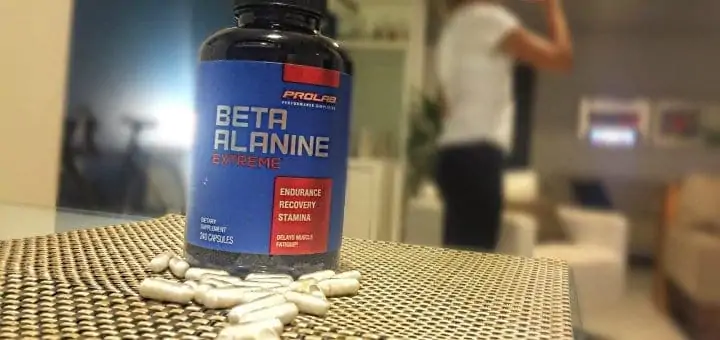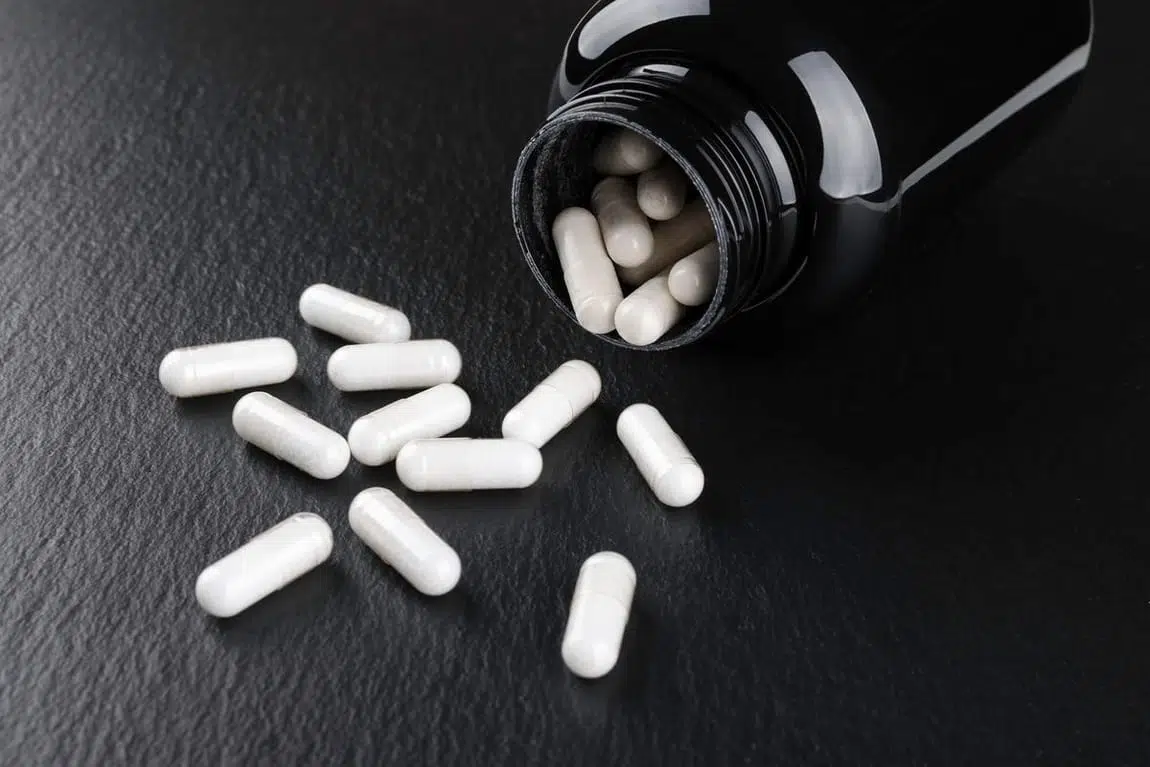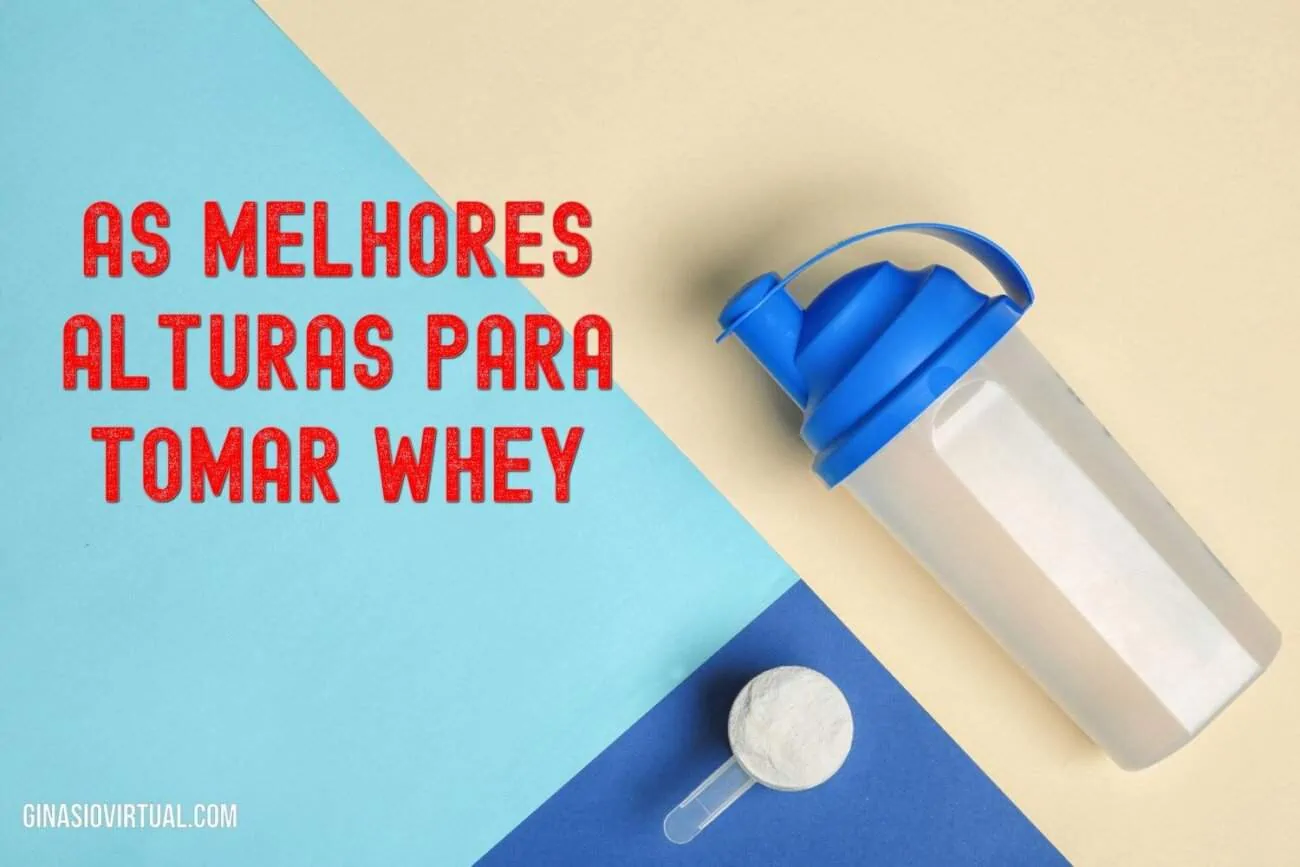A complete guide to Beta-Alanine
If you use or have already used a pre-workout supplement, this name is probably not strange to you, as the Beta-Alanine is increasingly common in this type of product.
Theoretically, you can achieve greater muscular resistance, more strength and an improvement in your body composition with this supplement, but is it true?
Find out in this article.
What is Beta-Alanine?
First of all, to find out more about this supplement, you also need to know more about Carnosine, as The role of Beta-Alanine and the mechanism by which it works is through increasing levels of Carnosine.
Carnosine is an amino acid that, by mitigating the increase in acidity in the muscles, allows them to be exercised for longer, especially in short/medium duration and medium/high intensity activities, such as hypertrophy training.
In practice, by increasing Carnosine reserves, we can achieve, for example, one or two more repetitions in the flat bench press, or if you are a fan of HIIT workout, greater tolerance to the sprint phase (and consequently better performance).
So, how do we increase Carnosine levels?
With a Carnosine supplementation?
Yes, it is possible to increase Carnosine levels by supplementing the amino acid itself.
But it's not the most effective way.
Muscle cells cannot effectively absorb Carnosine, therefore, Carnosine which is a ?combination? of Beta-Alanine and L-Histidine, it is transformed into these two precursors to enter the muscle cells, and be synthesized into Carnosine within the muscle.
The most effective way to increase Carnosine levels within the muscle (where we need it) is through Beta-Alanine supplementation, which upon entering the muscle cells is synthesized into?Carnosine!
And oral supplementation of Beta-Alanine is really effective in this task.
Benefits of Beta-Alanine
The main benefits of this supplement are:
- More performance
- More lean mass
- Less fatigue
- More resistance
But, does it work?
Yes, it is apparently effective in many contexts, but not all.
You greatest benefits They occur mainly in activities of moderate/intense intensity, lasting between 60 and 240 seconds.
In other words, if you are a strength athlete and/or train with low repetitions (less than 8), it is possible that Beta-Alanine is not the right supplement for you.
Now, if you use eight or more repetitions per set, or if you are a fan of supersets, Beta-Alanine can help.
O HIIT workout is another example where this supplement works.
Beta-Alanine can reduce fatigue, and also the perception of fatigue, that is, it acts not only on a muscular level but also on a mental level in a positive way. (1)
Studies and Beta Alanine
A comparison was made between HIIT training with and without Beta Alanine for 6 weeks.
Both groups reduced their body fat percentage, but the group that used Beta-Alanine also had an increase in muscle mass.(2)
It was also concluded that supplementation with Beta-Alanine more Creatine leads to greater gains in lean mass than Creatine alone.(3)
In addition to gains in lean mass, it also brings benefits in terms of resistance and performance.(4)
Finally, Beta-Alanine supplementation was tested in conjunction with resistance training, in which the protocol used was 6 sets of 12 repetitions in squats.(5)
The result?
A difference of 22% in the total number of repetitions, favorable to the group that used Beta Alanine.
There are studies that demonstrate benefits in short-term exercise, but there are also several that show that it is not worthwhile in this type of activity(6), that is, there may or may not be a benefit.
If your goal is to increase lean mass, what you will notice with this supplement is, above all, a greater ability to perform one or two more repetitions in your sets, especially if you use higher repetitions.
Less than eight repetitions is probably not worth using this supplement, although there may be advantages, they apparently are not significant, or at least that's what scientific studies say!
Where to buy Beta-Alanine?
You can easily find Beta-Alanine supplements in any supplement store, but as usual, Myprotein combines quality with a good price and is available here the Beta-Alanine of this brand.
How to take Beta-Alanine?
The dosage must be at least 2g daily, and can go up to 5g per day.
One of the side effects of Beta-Alanine is a tingling sensation in the body, and if you have ever used a pre-workout supplement with Beta-Alanine you probably already know this effect.
Calm down? This only happens to some people, and usually in high doses.
Furthermore, this effect does not have any negative consequences, it is harmless.
Ideally, if you experience this effect, you should divide your Beta-Alanine intake into several doses throughout the day.
This supplement should preferably be taken with meals, as it is more effective this way.
Ideally it should not be combined with Taurine, as they can ?get in the way? in absorption.
Oh, and you don't necessarily need to use Beta-Alanine in pre-workout, as its effect is cumulative (similar to Wreatin), and not immediate, that is, if you take it today for the first time the only thing you might notice is the tingling.
You usually start to feel its effects after 1 to 2 weeks, depending on the dose used.
Conclusion
A Beta Alanine it's a good product. Interesting. But limited, like all supplements.
It brings greater benefits to certain groups of people, with certain objectives.
Minor for others.
But it is one of the few supplements you will find that studies show that there is actually an advantage to using it.
It's not at the level of Creatine, that's for sure, but as you can see in our article on how to create a pre-workout supplement, it's one of the elements to take into account.
Let's say that compared to Creatine, you will possibly be in a second line of supplements to use.
If you are already looking for something in that second line, then you have a good choice here.
Have you tried it yet?
Leave your opinion in the comments.
(1) http://www.ncbi.nlm.nih.gov/pubmed/17194255 (two) http://www.ncbi.nlm.nih.gov/pubmed/20386120 (3) http://www.ncbi.nlm.nih.gov/pubmed/17136944 (4) http://www.ncbi.nlm.nih.gov/pubmed/19210788 (5) http://www.ncbi.nlm.nih.gov/pubmed/18548362 (6) http://www.ncbi.nlm.nih.gov/pubmed/22270875






Is it appropriate to take it every day even if you don't train? And by the way, should you stop, for example, 1 week after 8 weeks of taking it?
Is it necessary to stop taking it after about 1 or 2 weeks if you have already been using it for 8 weeks in a row, for example?
Hi Diogo.
There is not much information related to long-term use (+12 weeks), however, the ideal seems to be to take a break for a while after 8-12 weeks of use.